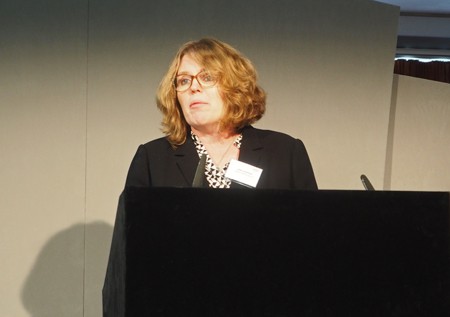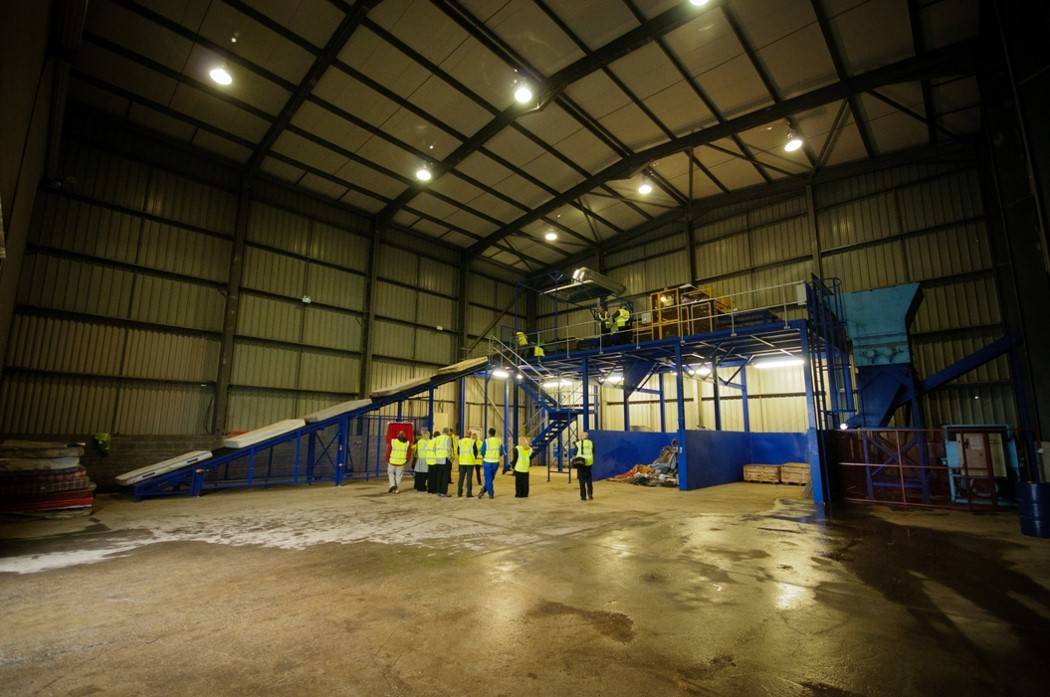This was the message from panellists at the third session of the Textile Recycling Conference 2016 in London yesterday (5 October) – who spoke about the difficulties involved in finding outlets for the waste streams.

Jane Gardner, a senior consultant at Axion Consulting and manager at trade body Carpet Recycling UK, addressed delegates by describing the 400,000 tonnes of carpet disposed of in the UK each year.
The material is “mixed, dirty and hard to separate” but contains recyclable textiles such as synthetic fibres and wool fibres as well as bitumen.
She explained that carpet recycling has grown in the UK, from just 2% of the used volume arising in 2007 to about 127,000 tonnes or 31% in 2015.
Energy from waste
However, Ms Gardner included energy from waste within her recycling figures and revealed that of the 31% of carpets ‘diverted from landfill’ in 2015, some 65% went to energy from waste outlets.
Energy from waste, Ms Gardner continued, is the most common end destination for used carpets, followed by equestrian applications. Fibre recovery and plastics recovery in comparison accounts for just 3% and 4% respectively.
Ms Gardner explained that “new technologies” were vital to achieving what she conceded is a challenging landfill diversion target of 60% by 2020. At present, there are just 19 outlets for used carpets in the UK including reuse organisations, recyclers and fuel flock specialists for energy recovery.
And, while there has been an increase in collections from retailers offering takeback schemes, only 20% of councils segregate carpets received due to space limitations, water damage and a lack of end markets.

Mattresses
Delegates heard that these issues were exacerbated in mattress recycling, where recycling one tonne of mattresses can cost a local authority between £150 and £200.
Lee Foulkes, technical manager at Rhondda Cynon Taf council in Wales, took to the podium to explain that as a unitary authority it had a “unique perspective” on the supply chain problem.
He said: “When councils are paying that level of gate fee we want a high level of quality.” He pointed to a recent tender exercise by a consortium of local authorities in South Wales (lead by Cardiff City Council) as a failure of the market to provide high recycling rates without excessive costs.
Mr Foulkes explained that one way to slash mattress recycling costs for reprocessors would be to focus on deconstructing the textiles to find outgoing end markets. This would reduce the outgoing costs of sending the material to recovery as well as offset the cost of manual intensive labour.
But, he conceded that mattresses “will continue to present Welsh and UK local authorities with problems for the foreseeable future” as there is little demand for the material due to contamination.
Asked by letsrecycle.com whether landfill bans would incentivise end markets despite much of the material being contaminated, Mr Foulkes responded that it would require a “mixture of policy and economics” to make it work. He point to the existence of landfill bans in a small number of EU Countries (the Netherlands and France) and some states within the US. “Mattresses are strong candidate for extended producer responsibility” he continued and indicated the need for meaningful consultation with all involved in the sector, when considering such measures.










Subscribe for free